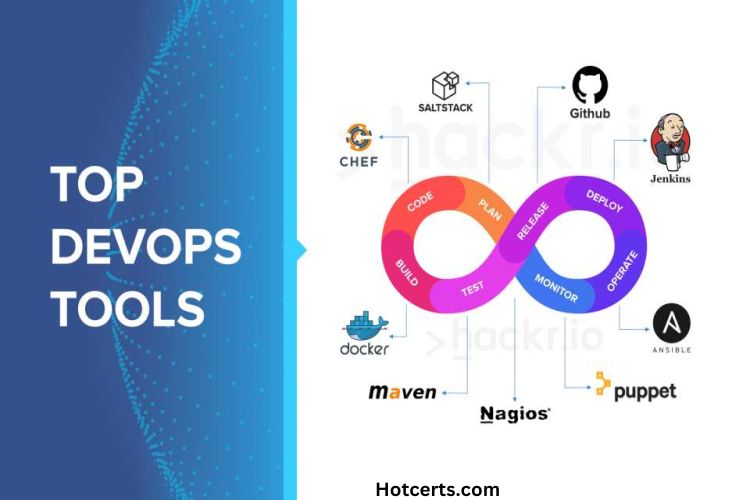The Top 10 Devops Tools You Should Know in 2023
Introduction:
As we enter the year 2023, the field of DevOps continues to expand and evolve. In today's fast-paced technology landscape, businesses need to keep up with the latest DevOps tools and methodologies to stay ahead of the competition. This is why we've put together a list of the top 10 DevOps tools that you should know in 2023.
- Jenkins
Jenkins is a popular open-source tool used for continuous integration and continuous delivery (CI/CD). It's highly extensible, and you can use it to automate almost any task related to building, testing, and deploying software. Jenkins is compatible with multiple platforms and has a vast plugin ecosystem, making it an excellent choice for DevOps teams of all sizes.
2. Kubernetes
Kubernetes is a container orchestration platform that automates the deployment, scaling, and management of containerized applications. It provides a robust and scalable infrastructure for managing containerized workloads, making it an ideal choice for large-scale applications.
3. Git
Git is a popular version control system that enables teams to collaborate on code projects seamlessly. It's an essential tool for DevOps teams as it provides version control and collaboration capabilities, making it easier to manage code changes.
4. Ansible
Ansible is a configuration management tool that allows you to automate the provisioning, configuration, and deployment of infrastructure. It uses a simple and human-readable language, making it easy to learn and implement.
5. Docker
Docker is a containerization platform that allows developers to package applications and their dependencies into containers. Containers provide an isolated environment that makes it easier to deploy and run applications consistently across different environments.
6. Nagios
Nagios is an open-source tool used for monitoring systems, networks, and infrastructure. It provides real-time alerts and notifications, making it easier to detect and resolve issues before they impact your business.
7. Prometheus
Prometheus is an open-source monitoring system that specializes in monitoring and alerting for cloud-native environments. It provides a robust and scalable platform for collecting and analyzing metrics, making it an ideal choice for DevOps teams.
7. Splunk
Splunk is a powerful data analytics platform that allows you to collect and analyze machine-generated data. It provides real-time visibility into your systems and applications, making it easier to identify and troubleshoot issues.
8. Terraform
Terraform is an open-source tool used for building, changing, and versioning infrastructure. It allows you to define your infrastructure as code, making it easier to automate the provisioning and management of infrastructure.
9. ELK Stack
The ELK stack is a combination of three open-source tools: Elasticsearch, Logstash, and Kibana. It's used for log management and analysis, providing real-time insights into your systems and applications.
In conclusion
These are the top 10 DevOps tools that you should know in 2023. They provide a robust and scalable infrastructure for managing your systems and applications, making it easier to stay ahead of the competition in today's fast-paced technology landscape. By incorporating these tools into your DevOps strategy, you can automate almost any task related to building, testing, and deploying software.


.jpg)
Comments
Post a Comment